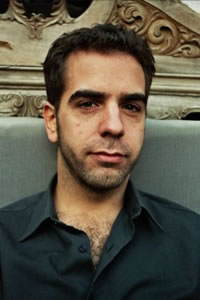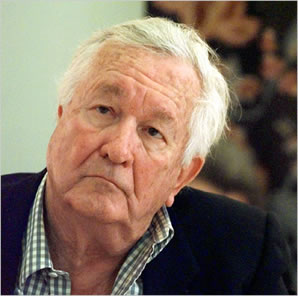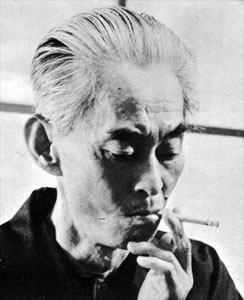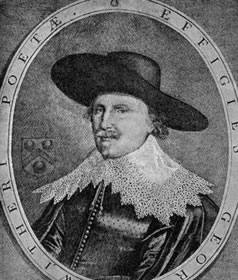De Zuid-Afrikaanse schrijver André Brink werd geboren op 29 mei 1935 in Vrede. Zie ook mijn blog van 29 mei 2007 en ook mijn blog van 29 mei 2008.en ook mijn blog van 29 mei 2009.
Uit: A Fork in the Road
“It is now more than forty years since Ingrid Jonker died, yet, through her poetry, there may be more people to whom she is a living presence than she was during her short lifetime. In other respects she may be more remote than ever. She was drowned in the night of 19 July, 1965 when she walked into the fiercely cold Atlantic Ocean at Three Anchor Bay in Cape Town, and moved straight into myth. The myth of the maligned, rejected, abused, misunderstood nymph of sea and sun who had foretold her death in her poetry since she’d been a teenager, finally canonised when Nelson Mandela read her poem ‘The Child’ at his inauguration in parliament in May 1994. How little could we, could anybody, have expected this life after death in that dark time when she opted out of the world?
Until recently, I have chosen not to be drawn into discussions or evocations of her life, notably in documentary films, some unforgivably bad. But precisely because of these I have begun to believe that perhaps I owe it to her at last to unfold, without drama or melodrama, some of the things I have kept to myself. Not the icon but the person. The woman I loved. And who nearly drove me mad. In some respects, it should be done to set the record straight; in others, simply to remember. To hold on.
There is a photo of that sad, obscene funeral, four days after her death, with family massed in a dour black bank on one side of the grave and windswept friends on the other. Her long-time lover Jack Cope tried to jump into the grave like a latter-day Laertes, and everything threatened to implode in low drama. What strikes me when I look at it today, is the realisation that almost everyone in that photo, in fact, everyone involved with Ingrid in one way or another, is now dead. Her father, the arrogant loser, followed her to the grave within a few months. Jack, who knew, as I did, the agony of being with her and constantly losing her, and who faced, long before I had to, the dread of growing old, is dead. Uys Krige, the perennial golden boy of South African letters and the one who averted the most vulgar of explosions on the day of the funeral, is dead too – unbelievable as it still seems to all of us who have heard him reciting poetry or talking non-stop in five languages. Jan Rabie, beachcomber and romantic, the first modern writer of Afrikaans fiction, is dead.”

André Brink (Vrede, 29 mei 1935)
De Engelse letterkundige, schrijver en journalist Gilbert Keith Chesterton werd geboren in Londen op 29 mei 1874. Zie ook mijn blog van 29 mei 2007 en ook mijn blog van 29 mei 2008 en ook mijn blog van 29 mei 2009.
Uit: The Wisdom of Father Brown
„The consulting-rooms of Dr Orion Hood, th
e eminent criminologist and specialist in certain moral disorders, lay along the sea-front at Scarborough, in a series of very large and well-lighted french windows, which showed the North Sea like one endless outer wall of blue-green marble. In such a place the sea had something of the monotony of a blue-green dado: for the chambers themselves were ruled throughout by a terrible tidiness not unlike the terrible tidiness of the sea. It must not be supposed that Dr Hood’s apartments excluded luxury, or even poetry. These things were there, in their place; but one felt that they were never allowed out of their place. Luxury was there: there stood upon a special table eight or ten boxes of the best cigars; but they were built upon a plan so that the strongest were always nearest the wall and the mildest nearest the window. A tantalum containing three kinds of spirit, all of a liqueur excellence, stood always on this table of luxury; but the fanciful have asserted that the whisky, brandy, and rum seemed always to stand at the same level. Poetry was there: the left-hand corner of the room was lined with as complete a set of English classics as the right hand could show of English and foreign physiologists. But if one took a volume of Chaucer or Shelley from that rank, its absence irritated the mind like a gap in a man’s front teeth. One could not say the books were never read; probably they were, but there was a sense of their being chained to their places, like the Bibles in the old churches. Dr Hood treated his private book-shelf as if it were a public library. And if this strict scientific intangibility steeped even the shelves laden with lyrics and ballads and the tables laden with drink and tobacco, it goes without saying that yet more of such heathen holiness protected the other shelves that held the specialist’s library, and the other tables that sustained the frail and even fairylike instruments of chemistry or mechanics.
Dr Hood paced the length of his string of apartments, bounded– as the boys’ geographies say–on the east by the North Sea and on the west by the serried ranks of his sociological and criminologist library. He was clad in an artist’s velvet, but with none of an artist’s negligence; his hair was heavily shot with grey, but growing thick and healthy; his face was lean, but sanguine and expectant. Everything about him and his room indicated something at once rigid and restless, like that great northern sea by which (on pure principles of hygiene) he had built his home.“

G. K. Chesterton (29 mei 1874 – 14 juli 1936)
De Catalaanse dichter, schrijver en vertaler Eduard Escoffet werd geboren op 29 mei 1979 in Barcelona in 1979. Zie ook mijn blog van 11 juni 2009.
tag der unschuldigen kinder
nur noch ein halber übrig ist und das geschirr in der spüle stehen bleibt.
immer noch in der spüle: hast du denn nicht gesehen, dass das geschirr
auf deine hände wartet und darauf, dass du es gleiten lässt in
seifenschaum und sauberkeit? das schon, die liebe rührt nicht mal der liebe
gott an. nur das ganze jahr lang der pausenlose nieselregen:
schmeicheleien und hochgezogene schultern, geheilt durch ein wenig
distanz. flüsse hinter den fensterläden. hast du die liebe gewonnen,
versüßen dir die wurmigsten würmer mit verachtung dein gärtchen. und
das, aber immerhin, ist schon alles.
Vertaald door Roger Friedlein

Eduard Escoffet (Barcelona, 29 mei 1979)
De Hebreeuwse dichteres, schrijfster en letterkundige Leah Goldberg werd geboren in Königsberg (Pruisen) op 29 mei 1911. Zie ook mijn blog van 29 mei 2007 en ook mijn blog van 29 mei 2008 en ook mijn blog van 29 mei 2009.
Un pin
Ici je n’entendrai plus le chant du coucou.
Ici l’arbre ne se couvrira pas d’un manteau de neige,
Et pourtant c’est à l’ombre de ces pins
que mon enfance a ressuscité
au son des aiguilles: il était une fois…
J’appellerai patrie l’étendue des neiges,
la glace verdâtre entourant le cours d’eau
la langue du poème dans un pays étranger.
Peut-être que seuls les oiseaux migrateurs connaissent
lorsqu’ils sont suspendus entre ciel et terre
la douleur de deux patries
avec vous j’ai été plantée deux fois
avec vous les pins j’ai poussé
et mes racines, dans deux paysages différents.
Vertaald door Esther Orner
A Night Song
All the stars were hidden away
The moon is wrapped in black
From the North to Yemen in the South
There is no ray of light
The morning is a faithful widower
On its hips it wears a grey bag
From the North to Yemen in the South
There is no ray of light
Please light a white candle in my heart’s black tent
From the North to Yemen in the South
The light will shine

Leah Goldberg (29 mei 1911 – 15 januari 1970)
De Iraanse filmregisseur en schrijver Mohsen Makhmalbāf werd geboren op 29 mei 1957 in Teheran. Zijn familie was arm en tussen zijn 8e en zijn 17e levensjaar had Moshen al 13 verschillende baantjes gehad. In 1974 werd hij gearresteerd omdat hij geprobeerd had een politieagent te ontwapenen. Pas na de revolutie van 1979 werd hij vrijgelaten. Hij bemoeide zich niet meer met de politiek en begon boeken te schrijven en films te maken. Sindsdien heeft hij zevenentwintig boeken gepubliceerd. Zijn films zijn in meer dan veetig landen vertoond. In Iran zijn diverse films echter verboden.
Uit: Limbs of no body (Artikel in The Iranian, 20 juni 2001)
„Afghanistan is a country with no images, for various reasons. Afghan women are faceless which means 10 million out of the 20 million population don’t get a chance to be seen. A nation, half of which is not even seen by its own women, is a nation without an image.
During the last few years there has been no television broadcasting. There are only a few two-page newspapers by the names of Shariat, Heevad and Anise that have only text and no pictures. This is the sum total of the media in Afghanistan. Painting and photography have also been prohibited in the name of religion. In addition, no journalists are allowed to enter Afghanistan, let alone take pictures.
In the dawn of the 21st century there are no film productions or movie theatres in Afghanistan. Previously there were 14 cinemas that showed Indian movies and film studios had small productions imitating Indian movies but that too has vanished.
In the world of cinema where thousands of films are made every year, nothing is forthcoming from Afghanistan. Hollywood, however, produced “Rambo” about war in Afghanistan. The whole movie was filmed in Hollywood and not one Afghan was included. The only authentic scene was Rambo’s presence in Peshawar, Pakistan, thanks to the art of back projection! It was merely employed for action sequences and creating excitement. Is this Hollywood’s image of a country where 10 percent of the people have been decimated and 30 percent have become refugees and where currently one million are dying of hunger?
The Russians produced two films concerning the memoirs of Russian soldiers during the occupation of Afghanistan. The Mujahedin made a few films after the Russian retreat, which are essentially propaganda movies and not a real image of the situation of the past or present-day Afghanistan. They are basically a heroic picture of a few Afghans fighting in the deserts.
Two feature films have been produced in Iran on the situation of Afghan immigrants, “Friday” and “Rain”. I made two films “The Cyclist” and “Kandahar”. This is the entire catalogue of images about Afghans in the Iranian and world media. Even in TV productions worldwide there are a limited number of documentaries. Perhaps, it is an external and internal conspiracy or universal ignorance that maintains Afghanistan as a country without an image.“

Mohsen Makhmalbāf (Teheran, 29 mei 1957)
De Oostenrijkse schrijver en theatercriticus Hans Weigel werd geboren op 29 mei 1908 in Wenen. Zie ook mijn blog van 29 mei 2009.
Uit: Sympathieadresse ans Volk der Hirten (Bespreking van “Lern dieses Volk der Hirten kennen” door Walter Widmer in Die Zeit)
“Was hülfe es diesen Unbelehrbaren, wenn sie erführen, daß in der Schweiz die Bundesräte, also die Minister, mit der Straßenbahn fahren, daß ein Kompetenzstreit der Minister um die Größe eines Standers ein gesamtschweizerisches Gelächter auslösen würde? Was sagt es deutschen Juristen, wenn sie hören, daß ein hochgeachteter, sehr beliebter Gerichtspräsident zurücktreten mußte, weil er aus Versehen ein Päckchen Zigaretten eingesteckt hatte und die Verkäuferin — freilich eine Pfundskuh! — ihn des Diebstahls bezichtigte? Was hilft es zu wissen, daß ein Nationalrat und Chefredakteur einer großen Zeitung unbarmherzig ins Kittchen flog, weil er in angeheitertem Zustand einen Verkehrsunfall verursachte, sich dann auf seinen Titel und Stand berief und den Polizisten frech kam?
Ich fürchte, unser — der Schweizer — Verhältnis zum Staat wird bei deutschen Lesern mancherorts auf Unverständnis stoßen, obschon Hans Weigel es trefflich formuliert hat: „Die Schweizer sehen den Staat nicht als ein dräuendes Feindseliges irgendwo oben. Wenn sie sich, mit ihm auseinandersetzen, dann auf gleicher Ebene, sofern sie nicht auf ihn hinabsehen, ganz echt, aus Überzeugung. Der Staat, nämlich seine legislativen und exekutiven Organe, das ist nur ein notwendiges Übel, nicht ein Moloch, der sie beherrscht, sondern ihr Untertan. Die Schweizer haben keinen Respekt vor den Repräsentanten des Staats. Solche muß es geben, aber das ist kein Grund, ihnen zu huldigen, sie zu verehren oder Angst vor ihnen zu empfinden.” Oder: „Demokratie besteht nicht im Vermeiden, sondern im fairen Austragen von Konflikten und Skandalen.. Die Demokratie ist nicht unvollkommen, wenn etwas passiert, sondern erst dann, wenn -daraus nicht die entsprechenden Konsequenzen gezogen werden.” Es ist keine Kapuzinerpredigt, sondern eine nüchterne Bilanz der Fakten, die in der Schweiz gelten.”

Hans Weigel (29 mei 1908 – 12 augustus 1991)
De Engelse schrijver Terence Hanbury White werd geboren op 29 mei 1906 in Bombay (Mombai). Zie ook mijn blog van 29 mei 2009.
Uit: The Sword in the Stone
“How does one get hold of a sword?” he continued. “Where can I steal one? Could I waylay some knight, even if I am mounted on an ambling pad, and take his weapons by force? There must be some swordsmith or armorer in a great town like this, whose shop would still be open.”
He turned his mount and cantered off along the street.
There was a quiet churchyard at the end of it, with a kind of square in front of the church door. In the middle of the square there was a heavy stone with an anvil on it, and a fine new sword was struck through the anvil.
“Well,” said the Wart, “I suppose it’s some sort of war memorial, but it will have to do. I am quite sure nobody would grudge Kay a war memorial, if they knew his desperate straits.”
He tied his reins round a post of the lych-gate, strode up the gravel path, and took hold of the sword.
“Come, sword,” he said. “I must cry your mercy and take you for a better cause.”
“This is extraordinary,” said the Wart. “I feel queer when I have hold of this sword, and I notice everything much more clearly. Look at the beautiful gargoyles of this church, and of the monastery which it belongs to. See how splendidly all the famous banners in the aisle are waving. How nobly that yew holds up the red flakes of its timbers to worship God. How clean the snow is. I can smell smothing like fetherfew and sweet briar – and is that music that I hear?”
It was music, whether or pan-pipes or of recorders, and the light in the churchyard was so clear, without being dazzling, that you could have picked a pin out twenty yards away.
“There is something in this place,” said the Wart. “There are people here. Oh, people, what do you want?”
Nobody answered him, but the music was loud and the light beautiful.”

T. H. White (29 mei 1906 – 17 januari 1964)
Zie voor nog meer schrijvers van de 29e mei ook mijn vorige blog van vandaag.











